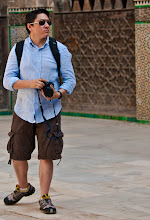Horses
- Take advantage of a horse's elegant curves
- A focal length of 50mm is ideal to a avoid distortion at close quarters
- For a portrait style shot its better to photograph the horse's head in profile rather than head on, as its very hard to keep all of it in focus due to the size
- Practice shooting a trotting or galloing horse using a smooth panning technique to blur the background. Remember to leave some space in the frame for your subject to move into
Action
To avoid camera shake you will need a shutter speed faster than 1/250.
Animal Farm
Always make sure that the animal's eye are in focus and allow sufficient DOF to ensure the nose is sharp too
Take advantage that you can take several shots of the same animal due to their confinement, so try different options
Do some research on your animals, investigate the best time to pay a visit. For example, most farm animals are most active close to feeding time, while excessive heat will force them to stay indoors or in the shade
Be prepared
Pets will get bored much faster than you think, dont put them infront of the lense until you are ready
Pick a suitable location with an uncluttered background.
Fish
If shooting gold fish on a pond, bringa polarizer to avoid reflections
Mount your camera on a tripod and bring some ND filters and try to capture some abstract images with long exposures
In aquariums bring a macro lense to focus on fish close to the glass using a rubber lens hood to shield from abient light
In AV mode set a wide aperture to allow your lense to gather as much light as possible, aiming to generate a fast shutter speed (1//250) A higher ISO sensitivity might be required to achieve sharp shots
Dim the lights in the room and turn off flash
Dogs
For shooting dogs or wolfs wait until its ears picked up and eyes open to catch it looking its best.




0 comments:
Post a Comment